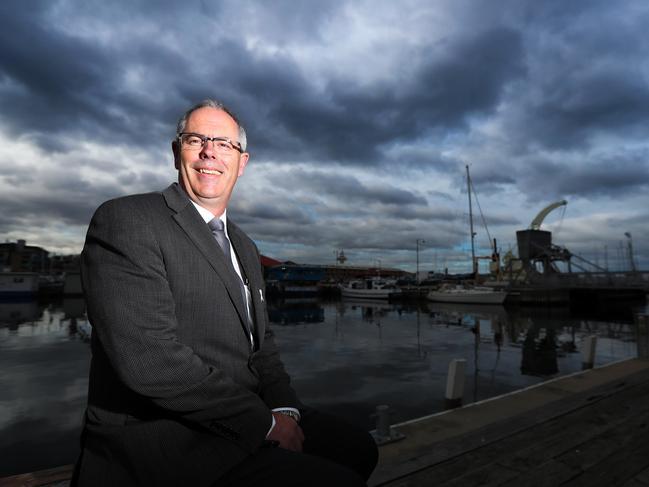EPA boss says we can all be the solution to beach pollution
If you dump it down the drain or let it float down a gutter, then you deserve to swim in it. The head of Tasmania’s Environment Protection Authority says everyone should take responsibility for beach pollution.
Lifestyle
Don't miss out on the headlines from Lifestyle. Followed categories will be added to My News.
OUR beaches are our responsibility, says the head of Tasmania’s Environment Protection Authority.
EPA director Wes Ford says the high pollution readings at Derwent River beaches in the past few months are most likely the result of many sources – such as animal faeces, boat toilets, stormwater and sewerage leaks.
While councils and TasWater play a major role, Mr Ford said the wider community also had a part to play in keeping beaches clean – through acts such as cleaning up after dogs, not flushing boat toilets in bays and being mindful of what goes down the drain.
“We need to get people to change their habits and think about what is getting washed down into the Derwent,” he said.
“If it’s on your streets, on your roof, or going down your outside drain, then it’s going straight into the river.”
The comments follow a summer of record pollution readings at some Greater Hobart beaches, and many days where swimmers were warned away from polluted beaches.
Kingborough Council has requested urgent help from the Environment Protection Authority to fix beach contamination issues in the municipality.

Mayor Dean Winter has requested the EPA investigate “extraordinarily high” faecal bacteria levels at the southern end of Blackmans Bay beach and the northern end of Kingston Beach earlier this year.
Cr Winter said a March sample from the northern end of Kingston Beach, near an off-leash dog zone, showed an enterococci result which “far exceeded any recreational water quality result since the conception of the monitoring program over two decades ago”.
In a letter to the EPA, Cr Winter says dog faeces contamination was a “feasible explanation” – but DNA testing had not confirmed this.
“We need some help with our investigations because we don’t have a conclusive reason,” he said.
Mr Ford said the exact source of all of the pollution may never be known, and a one-off high pollution reading – like that at Kingston Beach – could even be the fault of a passing recreational boat.
“It’s highly possible that one of those high readings occurred shortly after a recreational vessel had flushed a marine toilet,” he said.
MORE OF TODAY’S NEWS:
AIRSPACE PROPOSAL ‘PUZZLING’ FOR LOCAL OPERATOR
ANZAC SERVICE NEEDS TO BE MORE INCLUSIVE: COUNCILLOR
FLOCKING TO THE HIGHLANDS AS MERCURY PLUMMETS
He said a single boat could cause significant harm in sensitive marine environments through flushing marine toilets.
“We have a significant number of recreational vessels in the Derwent, and most of them don’t have contained chemical toilets, but marine toilets where the wastewater goes straight out.”
Despite laws against flushing such toilets in enclosed bays, he said the rules were hard to police and it was up to the community to take responsibility.
Mr Ford said the community also needed to ensure pollutants were not tipped down outside drains or gutters.
He said fuels or paints tipped down drains went directly into stormwater and then on to beaches.
Likewise, people emptying portable toilets down drains were sending raw human sewage into the river.
Mr Ford said cleaning up pet feaces was also important, as that would be washed into stormwater.
He said even the increasing wildlife population around Hobart may be resulting in more faeces heading to sea, and it was possible the large seagull population at Blackmans Bay may be a contributing factor.
READ MORE: PRIVATE PROPERTIES ADD TO BEACH POLLUTION
The problems at Blackmans Bay have been partly traced to poor plumbing on a handful of private properties, as well as tree roots in stormwater pipes.
Mr Ford said urban stormwater run-off into the Derwent was a problem, as was ageing sewerage infrastructure.
“We have significant lengths of old sewerage pipes that leak from time to time,” he said.
He said the time and cost associated with replacing the old pipes required waiting “decades and decades” for a fix.
In the meantime, he urged everyone to take responsibility for their patch.
“The community needs to be part of the solution as well.”
anne.mather@news.com.au


